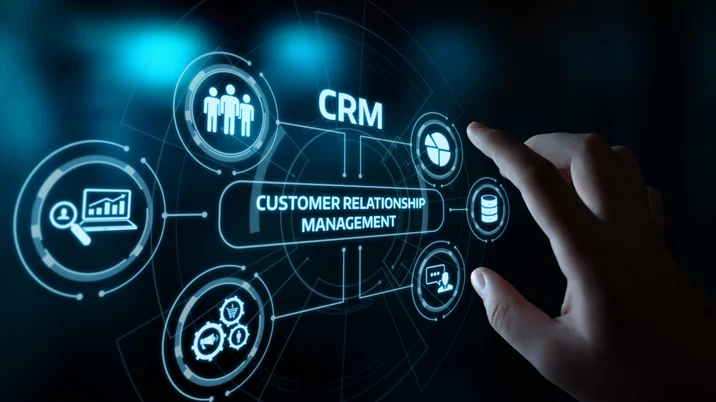- Customer focused business is one of the top business strategies that can be supported by information technology.
- Many companies are implementing Customer Relationship Management (CRM) business initiatives and information systems as part of customer focused or customer centric strategy to improve their chances for success in today’s competitive business environment.
- CRM uses information technology to create a cross functional enterprise system that integrates and automates many of the customer serving processes in sales, marketing and customer service that interact with a company’s customers.
- CRM system includes a family f software modules that provides tools that enables a business and its employees to deliver fast, convenient, dependable and consistent service to its customers.
- Siebel systems, Oracle, PeopleSoft, SAP are some of the leading vendors of CRM software.

Table of Contents
Components of a Customer Relationship Management System
Some major application components of a CRM system are:
Contact and Account Management
- CRM software helps sales, marketing, and service professionals capture and track relevant data about every past and planned contact with prospects and customers, as well as other business and life cycle events of customers.
- Information is captured from all customers touch points, such as telephone, fax, email, the company’s website, retail stores, kiosks, and personal contact and stores the data in a common customer database.
Sales
- A CRM provides sales representative with the software tools and company data sources they need to support and manage their sales activities and optimize cross- selling and up-selling.
- CRM also provides real time access to a single common view of the customer, enabling sales representative to check on all aspects of a customer’s account status and history before scheduling their sales cost.
Marketing and Fulfilment
- CRM system help marketing professionals accomplish direct marketing campaigns by automating such task as qualifying leads for targeted marketing and scheduling and tracking direct marketing mailings.
- CRM software helps marketing professionals capture and manage prospect and customer response data in the CRM database, and analyzes the customer’s and business value of company’s direct marketing campaigns.
Customer Service and support
- A CRM system provides service with software tools and real- time access to common customer database shared by sales and marketing professionals.
- CRM helps customer service mangers create, assign and mange request for service by customer.
Retention and Loyalty Program
- Enhancing and optimizing customer retention and loyalty is a major business strategy and primary objective of customer relationship management.
- CRM system helps a company identify, reward and market to their most profitable and loyal customer.
Three Phases of Customer Relationship Management
CRM can be viewed as an integrated system of web-enabled software tools and databases accomplishing a variety of customer focused business processes that support the three phases of relationship between business and its customers.
- ACQUIRE: A business relies on CRM software tools and databases to help it acquire new customers by doing a superior job of contract management, sales prospecting, selling, direct marketing and fulfillment.
- ENHANCE: CRM sales force automation and direct marketing and fulfilment tools help companies cross sell and up sell to their customer, thus increasing the profitability to the business.
- RETAIN: CRM analytical software and database help a company proactively identify and reward its most loyal and profitable customer to retain and expand their business via targeted marketing and relationship marketing programs.
Benefits and Challenges of CRM
Potential Benefits of CRM
The potential benefits of CRM are:
- CRM allows a business to identify and target its best customers
- It makes possible real- time customization and personalization of products and services based on customer needs, buying habits, and life cycles.
- CRM system can enable a company to provide a consistent customer experience and superior service and support across all the contact points a customer choose.
Challenges of CRM
The business benefits of CRM are not guaranteed and instead have proven elusive at many companies. The common reasons are:
- Lack of senior management sponsorship
- Improper chain management
- Elongated projects that take on too much, too fast
- Lack of or poor integration between CRM and core business systems
- Lack of end- user incentives leading to poor user adoption rates
Trends in CRM
- Increasingly enterprise must create tighter collaborative linkages with partners, suppliers, and customer, squeezing out time and cost while enhancing the customer experience and total value proposition.
- Most of the organization implements the four types of CRM, they are Operational, analytical, Collaborative and portal- based.
Frequently Asked Questions (FAQ)
What is CRM?
Customer relationship management, or CRM for short, is a system for handling communications with clients and potential clients.
Why is CRM important?
It facilitates streamlined business procedures, increased sales, and better customer satisfaction.
How does CRM benefit a business?
It increases efficiency, boosts customer retention, and improves decision-making through data insights.

